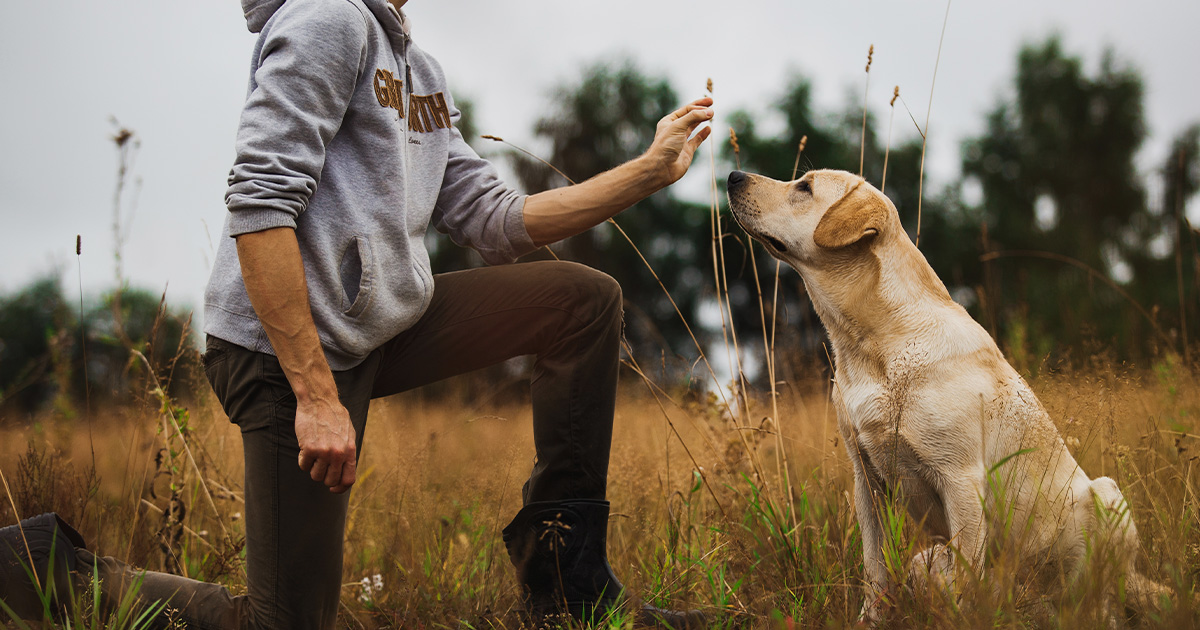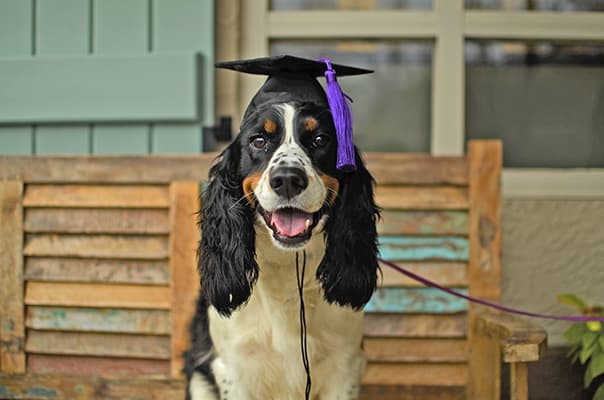Start Your Dog's Journey with Puppy Training That Builds Trust and Respect
Start Your Dog's Journey with Puppy Training That Builds Trust and Respect
Blog Article
Novice's Guide to Effective Dog Training in the house
Efficiently educating a pet at home needs a nuanced understanding of canine actions and effective interaction approaches. Establishing clear training goals, making use of high-grade rewards, and preserving consistency across household members are important elements. Incorporating training into daily regimens can improve both interaction and retention.
Recognizing Canine Habits
Comprehending pet dog actions is essential for efficient training and fostering a harmonious relationship between human beings and their canine friends - Puppy Training. Pet dogs communicate mainly via body language, articulations, and faces, making it important for proprietors to translate these signals accurately. Recognizing actions such as tail wagging, grumbling, or cring can provide insights right into a dog's mood and purposes
Moreover, understanding the natural instincts of pet dogs, such as their pack attitude, aids proprietors establish leadership roles within the household. This is crucial for developing an organized setting where pets feel protected and are extra receptive to training. Pets are likewise influenced by their socialization experiences; early direct exposure to numerous environments, individuals, and various other pets can significantly form their habits later on in life.
Typical behavior issues, such as aggression, anxiety, or extreme barking, often originate from misconceptions or unmet needs. Observing and dealing with these concerns quickly can avoid rise and make certain a favorable training experience. By fostering a deep understanding of pet dog behavior, owners can tailor their training methods to match their canine companions, ultimately leading to a mannerly and satisfied family pet.

Vital Training Tools
A well-equipped training area can substantially boost the performance of dog training at home. Crucial training tools ensure that both the pet and the fitness instructor can participate in effective sessions that foster learning and bonding.

Purchasing a sturdy chain and a comfy, well-fitting collar or harness is crucial for safety and security and control. These devices aid establish limits and ensure the pet dog remains safe and secure throughout training. Additionally, a marked training location, devoid of diversions, aids concentration for both the fitness instructor and the canine.
Educating aids such as training pads, cones, or dexterity tools can likewise boost the experience by introducing selection and challenges. Having a note pad or electronic application for tracking progress can be vital, enabling you to note successes and locations for improvement. Utilizing these vital devices will certainly develop a positive training atmosphere and lay the structure for reliable learning.
Producing a Training Routine
Developing a constant training routine is vital for efficient pet training in the house. A well-structured routine not just helps in enhancing wanted actions yet additionally supplies your pet with a complacency and predictability. To develop an efficient training routine, begin by identifying specific training goals, such as fundamental commands, chain strolling, or house-breaking.
Select a marked time every day for training sessions, ideally when your pet is receptive and sharp. Procedure must be short, about 5 to 15 minutes, to preserve emphasis and prevent tiredness. Uniformity in timing and setting will boost your dog's knowing experience.
Include training right into daily activities to reinforce abilities. Practice commands throughout strolls or mealtime, which integrates discovering right into natural routines. Additionally, continue to be flexible and readjust the regular as necessary, accommodating your canine's energy degrees and state of mind.
Positive Reinforcement Techniques

When executing positive support, it is important to pick benefits that are encouraging for your canine. High-value deals with, such as little items of hen or cheese, can be specifically efficient throughout training sessions. Furthermore, varying the benefits can preserve your pet dog's rate of interest and excitement.
Begin with simple commands, like "sit" or "stay," and progressively development to more intricate jobs. Consistency is essential; ensure that all household participants use the exact same commands and reward systems to stay clear of complication.
Moreover, it is vital to continue to be patient and avoid aggravation. Dogs, like people, discover at their own pace. By fostering a helpful training environment via favorable support, you can boost your dog's understanding experience while enhancing the bond in between you and your hairy buddy, preparing for successful training outcomes.
Usual Training Difficulties
While training a canine in your home can be a rewarding experience, it typically features a collection of usual obstacles that can check both persistence and consistency. One common issue is diversion. Pet dogs may become quickly averted by noises, movements, and even scents in their setting, making it challenging to keep their focus during training sessions.
Another challenge is inconsistency in commands and support. If family members utilize various hints or benefits, it can hinder and confuse the pet Discover More dog development. Developing a unified approach is vital for effective communication.
Furthermore, pets can experience irritation or tension, specifically if they do not understand what is expected of them. This can cause unwanted actions, such as barking or chewing.
Ultimately, the more information timing of reinforcement is vital. Delayed rewards can decrease the effectiveness of positive reinforcement, as pet dogs might fall short to connect the actions with the benefit.
Overcoming these difficulties calls for commitment, clear communication, and an organized training strategy - Puppy Training. Identifying and dealing with these typical challenges will lead the way for a much more effective and satisfying training experience at home
Conclusion
In conclusion, successful pet training in the house necessitates a thorough understanding of canine behavior and effective communication techniques. By developing clear training objectives and making use of top notch treats alongside positive reinforcement, the training process comes to be extra gratifying for both the pet dog and the trainer. Consistency, patience, and flexibility are vital parts that help with knowing. Eventually, incorporating training into daily routines improves the bond in between pet dog and proprietor, making the experience both enjoyable and efficient.
Developing a constant training regimen is vital for effective canine training at home.Positive support techniques are basic to effective pet dog training, promoting preferred behaviors via benefits rather than punishment. By cultivating an encouraging training environment through favorable support, you can boost your dog's knowing experience while strengthening the bond between you and your fuzzy buddy, laying the groundwork for effective training end results.
In conclusion, effective pet dog training at home demands a detailed understanding of canine actions and effective interaction approaches. By developing clear training goals and making use of high-quality deals with along with positive support, the training procedure becomes a lot more gratifying for both the instructor and the canine.
Report this page